
Liselotte Pulver, sometimes credited as Lilo Pulver, is a Swiss actress. Pulver was one of the biggest stars of German cinema in the 1950s and 1960s, where she often was cast as a tomboy. She is well known for her hearty and joyful laughter. Her films outside of German cinema include A Time to Love and a Time to Die (1958), One, Two, Three (1961) and The Nun (1966).
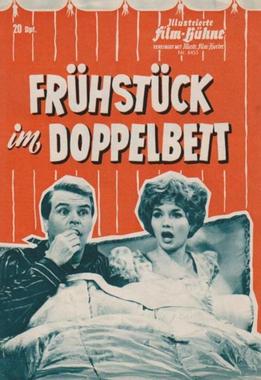
Breakfast in Bed is a 1963 German comedy film directed by Axel von Ambesser and starring O.W. Fischer, Liselotte Pulver and Ann Smyrner. The wife of a newspaper publisher grows sick of his frequent absences.

A Heidelberg Romance is a 1951 West German romance film directed by Paul Verhoeven and starring Liselotte Pulver, O.W. Fischer and Gardy Granass. While accompanying his daughter on a trip to Heidelberg, a wealthy American businessman recounts a romance he had with a local girl forty years before. The film set a template for portraying German-American relations.
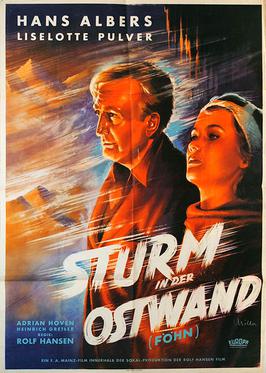
The White Hell of Pitz Palu is a 1950 West German mountain film directed by Rolf Hansen and starring Hans Albers, Liselotte Pulver and Adrian Hoven. It is a remake of Arnold Fanck's 1929 film The White Hell of Pitz Palu. Interiors were shot at the Bavaria Studios in Munich. The film's sets were designed by the art directors Hans Sohnle and Fritz Lück. It was a prominent early role for the emerging Swiss star Pulver.
Georg Witt was a Russian-born German film producer. Born in Moscow he moved to Germany at a young age. He produced around forty films, including the 1955 Liselotte Pulver comedy I Often Think of Piroschka. He was the second husband of the actress Lil Dagover.

The Last Summer is a 1954 West German drama film directed by Harald Braun and starring Hardy Krüger, Liselotte Pulver and Mathias Wieman. It was shot at the Bavaria Studios in Munich. The film's sets were designed by the art directors Kurt Herlth and Robert Herlth.
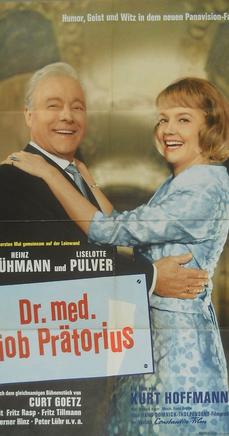
Praetorius is a 1965 West German comedy film directed by Kurt Hoffmann and starring Heinz Rühmann, Liselotte Pulver and Fritz Tillmann. The film was shot at the Bavaria Studios in Munich. It was based on a play by Curt Goetz which had previously been turned into the 1950 German film Doctor Praetorius and the 1951 Hollywood film People Will Talk.

Klettermaxe is a 1952 West German comedy crime film directed by Kurt Hoffmann and starring Liselotte Pulver, Albert Lieven and Charlott Daudert.
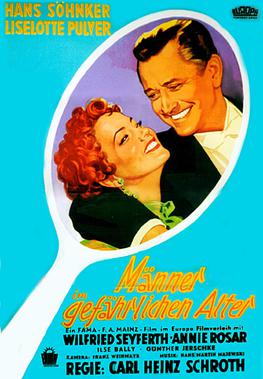
Men at a Dangerous Age is a 1954 West German comedy film directed by Carl-Heinz Schroth and starring Hans Söhnker, Liselotte Pulver and Annie Rosar. It was shot at the Wandsbek Studios in Hamburg. The film's sets were designed by the art directors Mathias Matthies and Ellen Schmidt.

The Bogeyman is a 1953 West German crime comedy film directed by Carl Boese and starring Liselotte Pulver, Hans Reiser, and Harald Paulsen. It was shot at the Wandsbek Studios in Hamburg. The film's sets were designed by art director Mathias Matthies.

Reaching for the Stars is a 1955 West German drama film directed by Carl-Heinz Schroth and starring Erik Schumann, Liselotte Pulver and Gustav Knuth.

We'll Talk About Love Later is a 1953 West German comedy film directed by Karl Anton and starring Gustav Fröhlich, Maria Holst and Liselotte Pulver.

Confessions of Felix Krull is a 1957 West German comedy and drama film directed by Kurt Hoffmann and starring Horst Buchholz, Liselotte Pulver, and Ingrid Andree. It is based on the 1954 novel of the same title by Thomas Mann. The story was later made into a 1982 television series The Confessions of Felix Krull. It was shot at the Wandsbek Studios in Hamburg and on location in Lisbon. The film's sets were designed by the art director Robert Herlth. Mann's novel was made into a movie again in 2021.

Uli the Farmhand is a 1954 Swiss romantic comedy film directed by Franz Schnyder and starring Hannes Schmidhauser, Liselotte Pulver and Heinrich Gretler. It is based on the classic 1841 novel of the same name by Jeremias Gotthelf. It tells of a wayward young man who eventually settles down.

Uli the Tenant is a 1955 Swiss comedy drama film directed by Franz Schnyder and starring Liselotte Pulver, Hannes Schmidhauser and Emil Hegetschweiler. Based on a classic 1849 novel by Jeremias Gotthelf, it was made as a sequel to the hit 1954 film Uli the Farmhand.

Where the Truth Lies is a 1962 French thriller film directed by Henri Decoin and starring Juliette Gréco, Jean-Marc Bory and Liselotte Pulver.
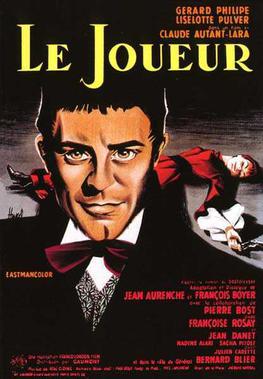
The Gambler is a 1958 French-Italian drama film directed by Claude Autant-Lara and starring Gérard Philipe, Liselotte Pulver and Françoise Rosay. It is an adaptation of Fyodor Dostoevsky's 1866 novel The Gambler.

The Beautiful Adventure is a 1959 West German comedy film directed by Kurt Hoffmann and starring Liselotte Pulver, Robert Graf and Bruni Löbel.

The Buddenbrooks is a 1959 West German drama film directed by Alfred Weidenmann and starring Liselotte Pulver, Hansjörg Felmy, Nadja Tiller. It was released in two parts. It is an adaptation of the 1901 novel of the same name by Thomas Mann.
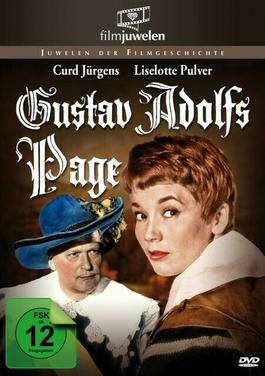
Gustav Adolf's Page is a 1960 German-Austrian historical adventure film directed by Rolf Hansen and starring Liselotte Pulver, Curd Jürgens, and Ellen Schwiers. It is based on the 1882 novel of the same title by Conrad Ferdinand Meyer.



















